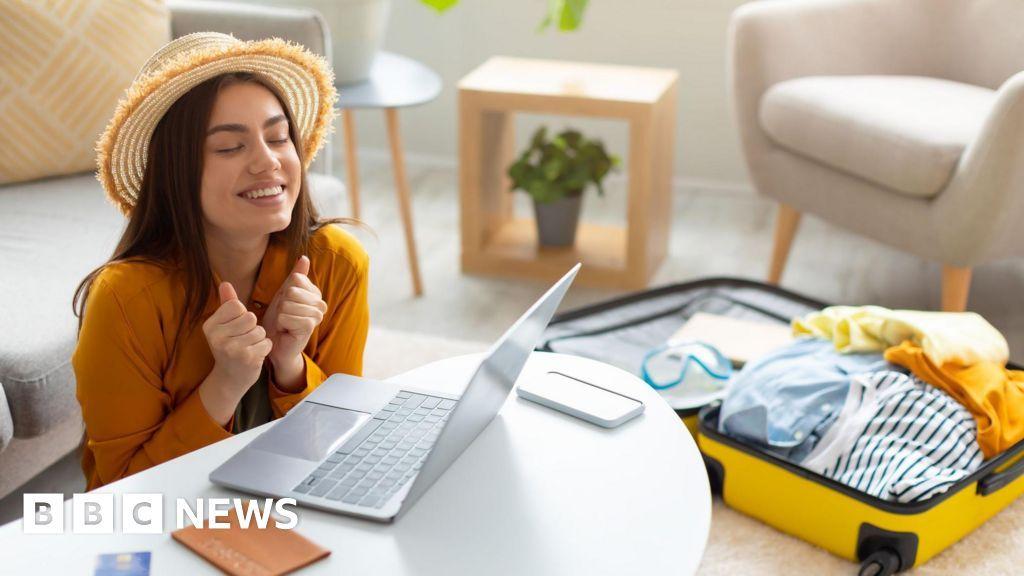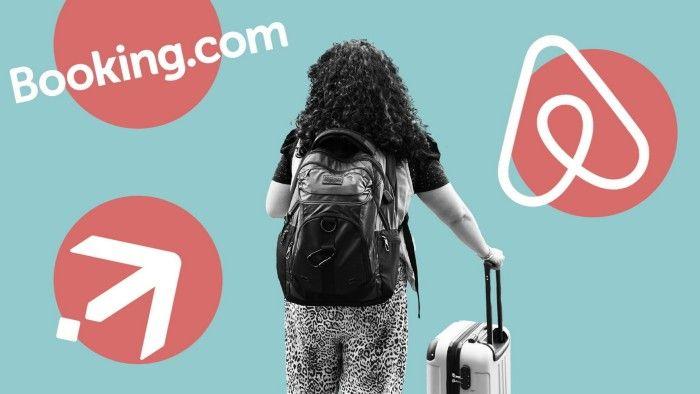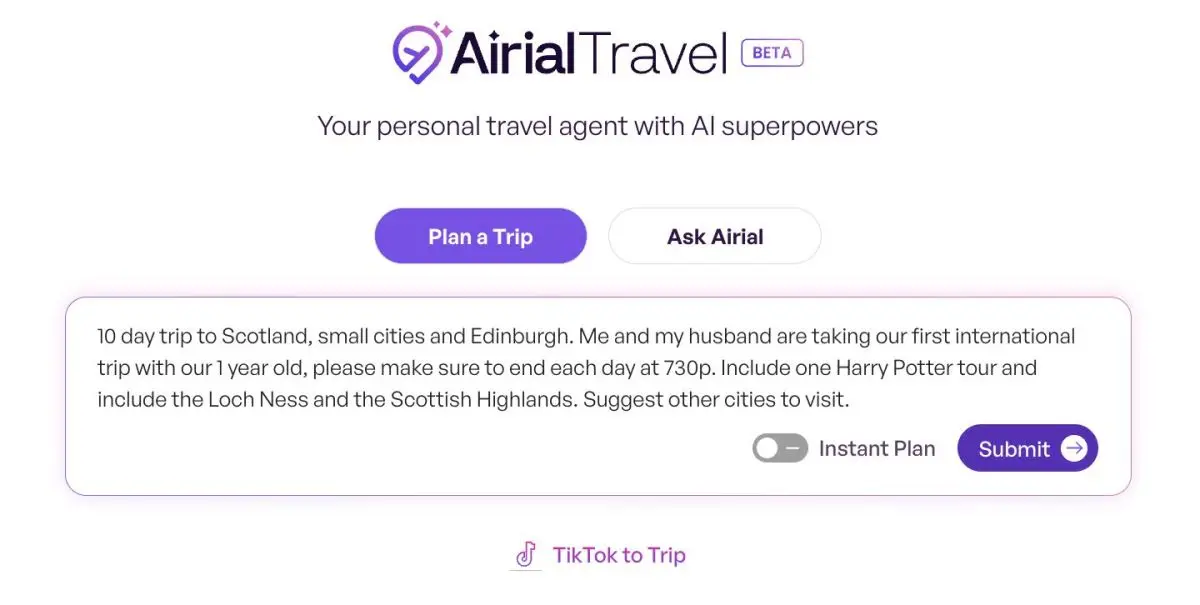AI Reshaping Holiday Planning: UK Travel Trends Reveal Generational Divide
2 Sources
2 Sources
[1]
More holidaymakers using AI to plan trips
More holidaymakers are turning to AI when planning or booking their trips, according to travel association ABTA. The body found that 8% of travellers were using AI - up from 4% last year - with younger holidaymakers more likely to use the technology when planning their trips. However, AI still lagged a long way behind more established methods - such as general internet searches and asking family and friends. Overall, the number of people taking a holiday continued a recent trend of climbing back towards pre-pandemic levels, ABTA said.
[2]
Almost a fifth of young UK adults use AI to design holiday, study finds
Traditional package holiday is still the most common eventual purchase, travel industry body Abta reports Almost one in five young adults are now turning to artificial intelligence to design their holiday, according to the UK travel industry body Abta. While the traditional package holiday still remains the most common eventual purchase, Abta found that 18% of 25- to 34-year-olds were turning to AI tools such as ChatGPT to inspire their trips abroad. The generational divide remains stark, with fewer than 3% of over-55s citing AI as a source of holiday ideas - and 25% of Britons overall still reaching for a traditional brochure. But the travel association said that it expects the role of the technology to increase sharply, with almost two in five saying they would be confident to allow an AI assistant to book their travel. In research unveiled at its annual travel industry convention in Magaluf on the Spanish island of Mallorca, Abta also said the proportion of Britons who took a holiday last year had almost returned to its pre-pandemic peak, with increasing confidence in foreign travel. About 87% of people surveyed by Abta took a holiday at home or abroad last year, with an ever higher proportion of people citing a break as the most important discretionary spend, above leisure, gadgets and entertainment, even in difficult economic times. The trade body's chief executive, Mark Tanzer, said the increasing use of AI reflected consumer behaviour across all industries, adding: "For our sector, the challenge is to harness the potential which AI has to support our businesses, while continuing to celebrate and champion the value of the personal touch and expertise which comes with booking with a travel agent or tour operator." Twice as many people are using AI for holiday planning than a year ago, the poll of about 2,000 UK adults in July found, with 8% of respondents saying they rely on it for inspiration, up from 4% in the 2024 survey. It also found that 25- to 34-year-olds were most likely to describe a holiday as "important for their mental health", at 90% compared with the 80% average, and twice as likely - 20% to 10% - to say they choose a company, hotel or destination based on its environmental commitments. Some expressed scepticism at that claim. Steve Heapy, the chief executive of the airline and tour operator Jet2, said: "Everyone wants to be greener - but if it's costing more money, they tend to think twice about it." However, he added that younger holidaymakers "seem to be a lot more responsible and healthier living than when I was young - we've got to understand that, because it is the future". Heapy also criticised moves by the Spanish tourism authorities to change the profile of visitors, after overtourism protests this summer. Spain is hoping to promote longer stays and slower travel, in a new €30m (£26m) advertising campaign that moves the focus away from traditional beach holidays. Manuel Butler, the UK director of the Spanish Tourist Office, said the country was now "chasing diversification not volume". Heapy said: "When you boil down what they've said, we want a different type of customer - they basically want rich people. Given Spain is supposed to be a socialist utopia, it doesn't sound very socialist that they want just rich people here ... If a prerequisite to going on holiday is being rich, I think that's absolutely disgraceful." He said problems in Spain and elsewhere with too many visitors were down to "unlicensed tourism" rather than big operators and intensified his calls for governments to clamp down on instances of Airbnb owners where someone "doesn't have a tourism licence, doesn't have a health and safety certificate, and possibly not paying tax". He said that if owners are found to not have the right certificates and tax records, "you get fined. If you don't do that, you go to jail. All the unlicensed properties will disappear overnight. People should take individual responsibility, get registered, get it done."
Share
Share
Copy Link
Recent studies show a significant increase in AI usage for holiday planning, especially among younger UK adults. Traditional methods still dominate, but AI's role is expected to grow rapidly in the travel industry.

AI's Growing Influence on Holiday Planning
The travel industry is witnessing a significant shift as artificial intelligence (AI) increasingly plays a role in holiday planning and booking. According to recent studies by the Association of British Travel Agents (ABTA), the use of AI in trip planning has doubled from 4% to 8% in just one year
1
2
.Generational Divide in AI Adoption
The adoption of AI in travel planning shows a clear generational divide. Among 25- to 34-year-olds, a striking 18% are now turning to AI tools like ChatGPT for holiday inspiration. In contrast, less than 3% of over-55s use AI for this purpose. This disparity highlights the tech-savvy nature of younger travelers and their openness to innovative planning methods
2
.Traditional Methods Still Dominate
Despite the growth in AI usage, traditional planning methods remain popular. General internet searches and recommendations from family and friends continue to be the primary sources of holiday inspiration. Interestingly, 25% of Britons still prefer using traditional brochures for their travel planning
1
2
.Future Prospects for AI in Travel
The travel industry anticipates a significant increase in AI's role. ABTA's research reveals that nearly two in five respondents would be confident allowing an AI assistant to book their travel. This suggests a growing trust in AI technology for more complex travel-related tasks
2
.Related Stories
Post-Pandemic Travel Recovery
The study also highlights the recovery of the travel sector post-pandemic. Approximately 87% of people surveyed took a holiday at home or abroad last year, indicating a return to pre-pandemic travel levels. This trend underscores the resilience of the travel industry and the enduring importance of holidays to consumers
2
.Changing Priorities in Travel
Young adults, particularly those aged 25-34, are more likely to view holidays as crucial for their mental health, with 90% emphasizing this aspect compared to the 80% average. Additionally, this age group is twice as likely to choose travel options based on environmental commitments, reflecting a growing consciousness about sustainable travel
2
.References
Summarized by
Navi
Related Stories
Recent Highlights
1
Google Gemini 3.1 Pro doubles reasoning score, beats rivals in key AI benchmarks
Technology

2
Meta strikes up to $100 billion AI chips deal with AMD, could acquire 10% stake in chipmaker
Technology

3
Pentagon threatens Anthropic with supply chain risk label over AI safeguards for military use
Policy and Regulation








